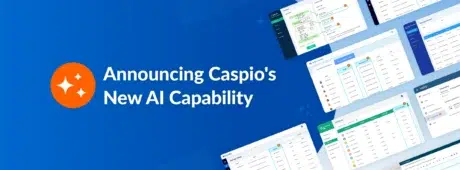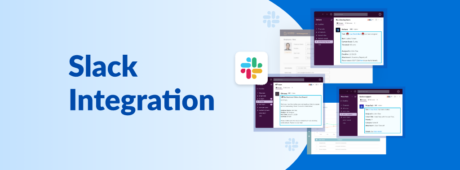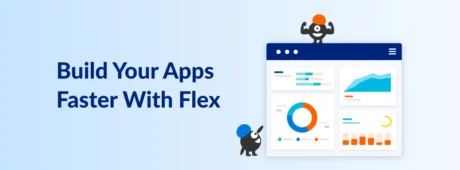How All-America Selections Used Low-Code to Plant the Seeds of Success [Video]
December 7, 2017

It’s easy to fall in love with the agapanthus flower. Also called the Lily of the Nile, the vividly-colored periwinkle flowers sit atop statuesque stems rising from a bouquet of emerald leaves. No wonder French impressionist Claude Monet made the flower the subject of his monumental work, the Agapanthus Triptych, a 42-foot canvas depicting a pond consumed by clusters of floating lilies. The strokes and colors are dreamy and hypnotizing, evoking peace and serenity.
With a series of 250 masterpieces along the same vein, Monet was not just a great painter of flower gardens and landscapes — he was also an avid gardener whose famous garden at his home in Giverny, France (pictured above) is a magical journey through the inspiration behind some of his most remarkable works.
Monet knew that gardens are important places of respite and innovation. This was an idea shared by the founders of All-America Selections (AAS), the only nonprofit plant trialing organization in North America. The mission of AAS is “to promote new garden seed varieties with superior garden performance judged in impartial trials in North America.” AAS hosts a world-renowned competition that tests previously unsold varieties of vegetable and ornamental seeds in rigorous trials across the United States and Canada. A panel of independent horticulturists judge approximately 80 trial sites to determine the annual AAS Winners which are then sold to consumers.
Creating a Robust Online Database With Low-Code
As AAS approached its 85th year, the organization needed a robust online database capable of managing valuable information for the large number of vegetables, flowers and plants it tests. That’s why Gail Pabst, marketing coordinator at AAS and its sister organization, the National Garden Bureau, was so grateful to find the Caspio low-code platform — it allowed her to publish comprehensive databases across both organizations’ websites with very little effort.
Pabst previously worked with one database in Microsoft Access and another on their website. This meant that she had to tediously enter the same data multiple times. Despite her lack of technical knowledge, Pabst used Caspio’s visual point-and-click tools to create sophisticated databases that didn’t require multiple uploads. “Our number one goal was to only have to touch the item once,” Pabst shares. “Caspio helped us bring in the information we needed in an easier, clearer and more concise way.”
Pabst elevates her role by building vital applications herself — and in the process, save her organization the expense of hiring extra staff. “As a horticulturalist, Caspio really helped me in my day-to-day business because I didn’t know anything about databases and now I feel I’ve accomplished a lot,” Pabst says. “So instead of growing a garden, I’m growing an organization,” she adds.
Cultivate success in your organization with Caspio’s low-code platform. Sign up for a free trial today.


Recommended Articles

Announcing Caspio's New AI Capability
READ STORY
6 Key Factors for Choosing the Right Low-Code Platform
READ STORY
How Hitachi Vantara Transformed Service Management With Low Code
READ STORY
Outperform in Uncertainty: How Smart Companies Are Scaling With Less
READ STORY
HIPAA-Compliant App Cuts Occupational Therapy Reporting Time by 80%
READ STORY
Caspio Turns 25: A Journey of Growth, Innovation and Impact
READ STORY
How a Healthcare Management Company Rebuilt Its Workflows With Low Code
READ STORY
How ION Embraces Low Code for Improved Data Management | Caspio
READ STORY
10 Practical Ways to Use AI in Your Caspio Apps
READ STORY
Send Instant Updates From Caspio to Slack Channels
READ STORY
WorkMovr + Healthier Pets: Redefining Pet Wellness With Low Code
READ STORY
Introducing Flex: A Modern Way to Build Apps
READ STORY
Announcing Caspio's New AI Capability
READ STORY
6 Key Factors for Choosing the Right Low-Code Platform
READ STORY
How Hitachi Vantara Transformed Service Management With Low Code
READ STORY
Outperform in Uncertainty: How Smart Companies Are Scaling With Less
READ STORY
HIPAA-Compliant App Cuts Occupational Therapy Reporting Time by 80%
READ STORY
Caspio Turns 25: A Journey of Growth, Innovation and Impact
READ STORY
How a Healthcare Management Company Rebuilt Its Workflows With Low Code
READ STORY
How ION Embraces Low Code for Improved Data Management | Caspio
READ STORY
10 Practical Ways to Use AI in Your Caspio Apps
READ STORY
Send Instant Updates From Caspio to Slack Channels
READ STORY
WorkMovr + Healthier Pets: Redefining Pet Wellness With Low Code
READ STORY
Introducing Flex: A Modern Way to Build Apps
READ STORY
Announcing Caspio's New AI Capability
READ STORY
6 Key Factors for Choosing the Right Low-Code Platform
READ STORY
How Hitachi Vantara Transformed Service Management With Low Code
READ STORY
